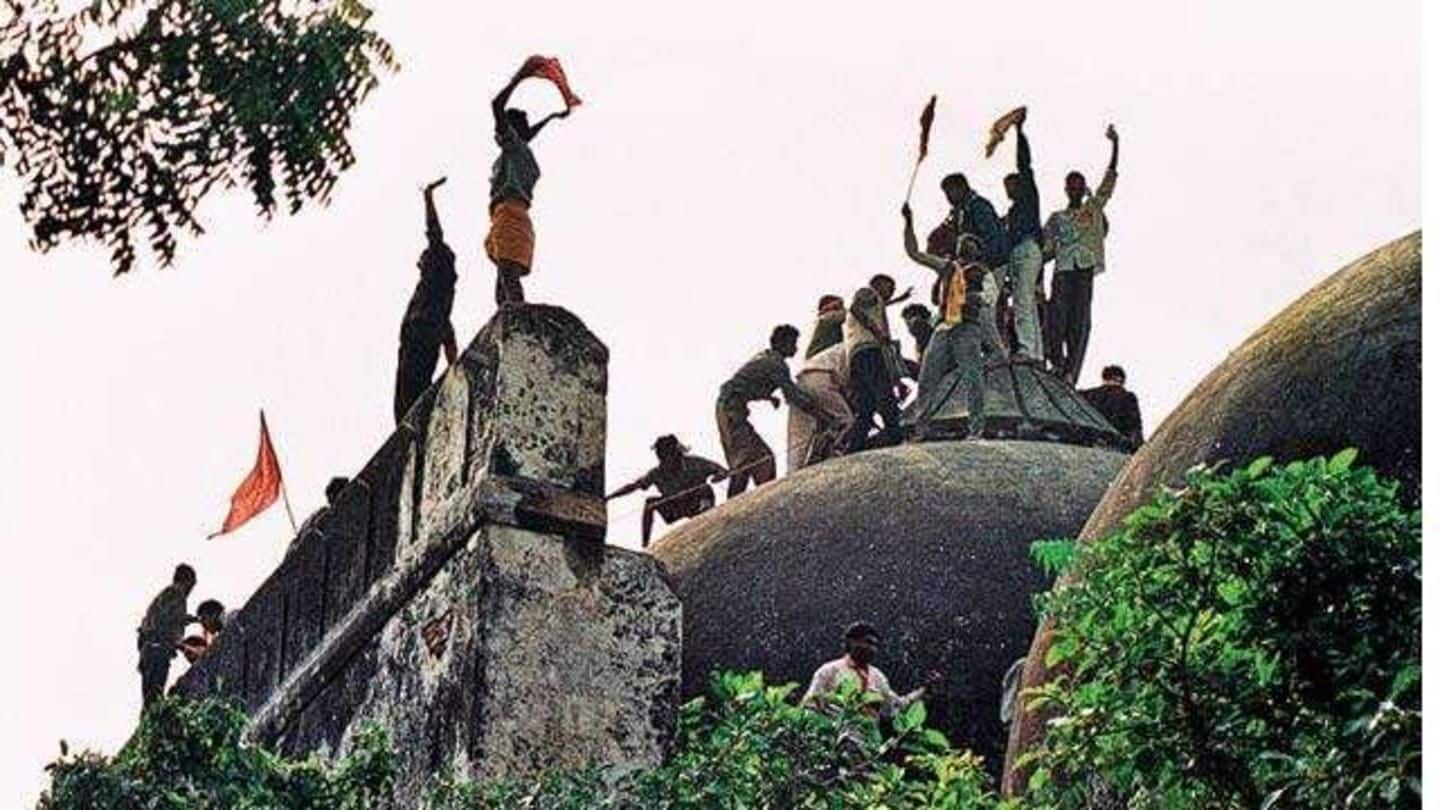
#AyodhyaVerdict: Case not to be referred to larger-bench, rules SC
What's the story
Giving a verdict which will have a direct impact on the decades-old dispute of Ram Mandir and Babri Masjid, the Supreme Court on Thursday ruled that the case related to mosque being integral for praying in Islam will not be referred to a larger bench.
About the 1994 judgment in Ismail Faruqui case, the bench noted the paragraph 52 needs to be understood in the context of land acquisition proceedings.
Here are the details.
Looking back
In 1994, SC ruled mosque is not essential for praying
The bench was hearing plea which challenged the Union of India v/s Ismail Faruqui case verdict.
In 1994, the apex Court ruled mosque wasn't "an essential part of the practice of the religion of Islam" hence "its acquisition (by the state) is not prohibited by the provisions in the Constitution of India."
Muslim bodies argued this 'sweeping' verdict should be revisited.
Details
Justice Bhushan says judgment shouldn't be read broadly
Justice Bhushan pronounced the majority judgment on his and CJI Misra's behalf.
"Observations in Ismail Faruqui judgment on mosques as not essential to religion is in the context of the acquisition of mosque and made with respect to the facts of that case," he said.
He added the previous judgment need not to be read broadly to mean mosque can never be essential to practice of Islam.
Twitter Post
Present case will be judged independently
The present case shall be decided on its own facts, the Ismail Farooqui Judgment would have no impact on it: Justice Bhushan
— Live Law (@LiveLawIndia) September 27, 2018
Quote
Justice Nazeer dissents with bench on verdict
In this verdict, Justice Nazeer was the sole dissenter. He said, "What is essential to religion as laid down in the 1994 case was arrived at without comprehensive examination. Questionable observations in Ismail Faruqui have permeated the Allahabad High Court verdict."